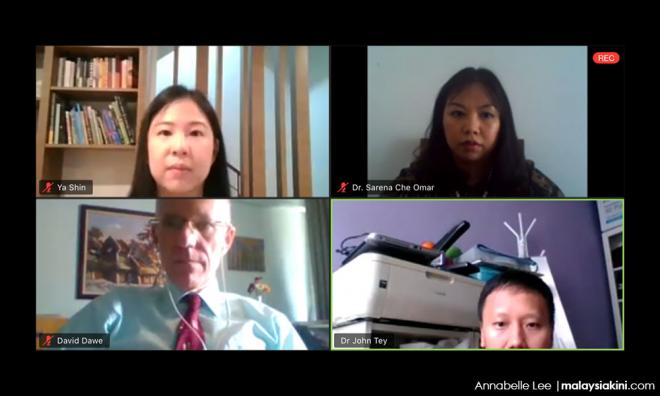
CORONAVIRUS | Amid chinks in the food supply chain, academics have urged the government to ensure that vulnerable groups have both economic and physical access to food.
In particular, they called for more business protection measures so that employees can continue to hold on to their jobs and afford necessities.
In an Ideas webinar this morning, UPM Institute of Agricultural and Food Policy Studies senior researcher Tey Yeong Sheng noted complaints from SMEs that the government’s latest economic stimulus package did not fully address their needs.
“People are complaining (and asking) how will this help SMEs.
“Without sustaining businesses, it is very hard for employees to keep their jobs,” he said.
Economists previously projected that the economic downturn caused by the Covid-19 pandemic and movement control order (MCO) would result in 2.4 million job losses domestically, with 1.6 million of them being unskilled jobs.
Even if food was in abundance, UN Food and Agriculture Organisation advisor David Dawe pointed to how employees would struggle to afford it should their jobs be affected.
“It is really, really important that people have economic access to food. And the government has a clear role to play in pumping up demand by helping people who have lost employment.
“This is the biggest food security problem right now, I think,” he said during the “Ensuring Food Security and Access during the Covid-19 Crisis” webinar.
Rolled out this month, the stimulus package does include a wage subsidy programme for firms that have lost more than half their revenue since Jan 1.
On condition that they do not cut jobs, firms are subsidised RM600 per employee per month for three months. This only applies to employees who earn RM4,000 and below monthly.
The package also includes tax breaks and loans for SMEs.
However, SMEs are appealing for more help with payroll and rent while others have called for wage subsidies to be expanded to cover a longer period and at a bigger quantum.
Keep markets open, clean
On the topic of physical access to food, Khazanah Research Institute senior research associate Sarena Che Omar expressed concern that avenues where lower-income groups bought groceries had been closed under the MCO until recently.
Rather than supermarkets, she said these communities prefer pasar tani (farmers markets).
She thus hoped that the government would continue keeping these affordable avenues open while also enforcing strict social distancing measures.
“What we do know is (these communities) do go to small markets like kedai runcit, and they do go to pasar malam and pasar tani for their food.
“So we need to make sure these places are available for them.
“And of course (since) there is money already allocated (in the economic stimulus package), use this money to control crowds,” she said.
Aside from physical access for lower-income folk, the closure of these markets has also affected farmers, causing them to scramble for alternative avenues.
Malaysiakini previously reported how the MCO saw disruptions to supply chains for vegetables, fruits, fish, chicken and eggs.
Perikatan Nasional has since allocated RM1 billion in its stimulus package to address food security woes. - Mkini



No comments:
Post a Comment
Note: Only a member of this blog may post a comment.